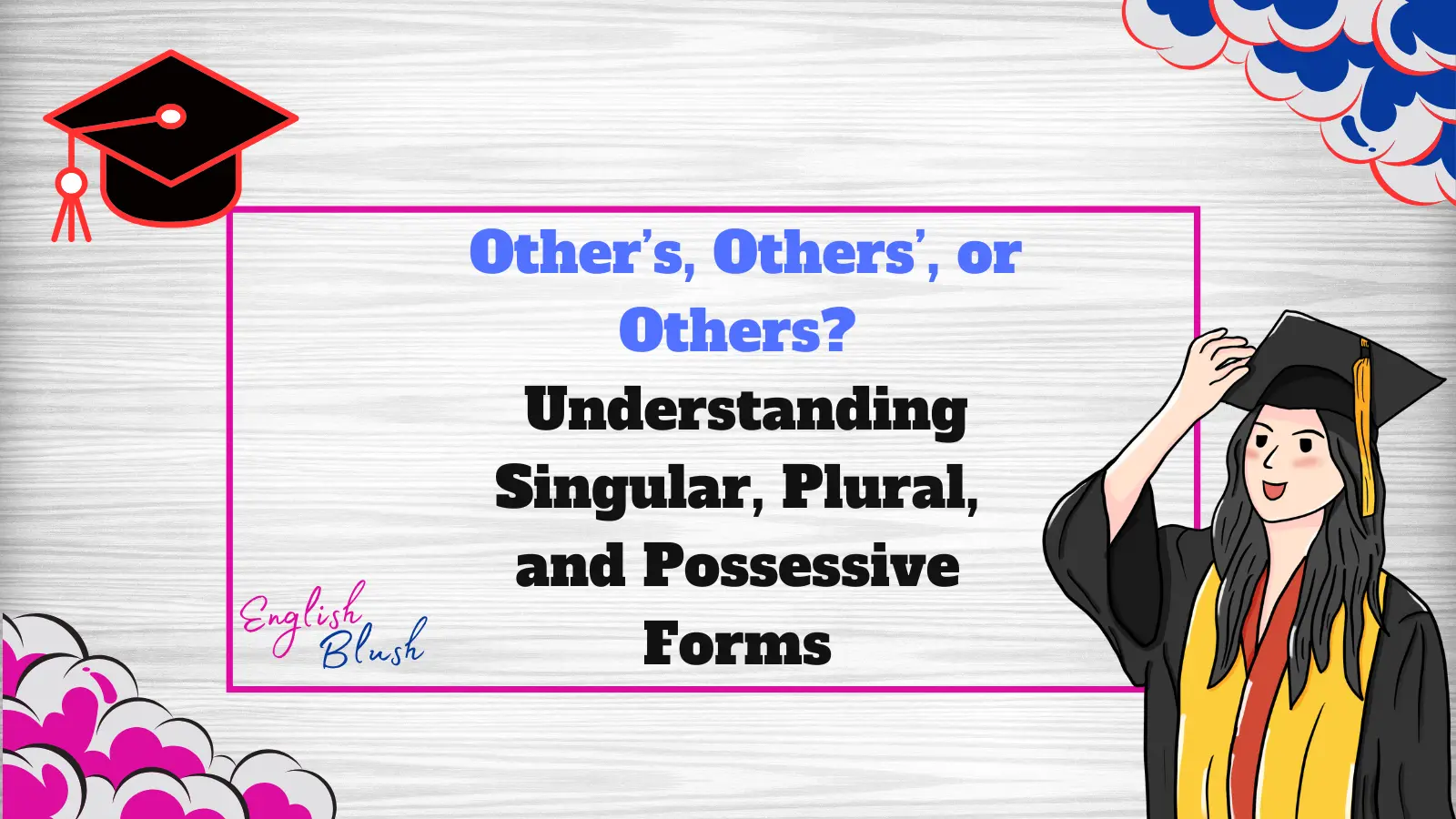When writing, you might come across words like other’s, others’, or others. These words may look similar but serve different purposes. Let’s break down what they mean and how to use them. Don’t worry, it’s simpler than it seems!
What Do These Words Mean?
1. Other’s (Singular Possessive)
When you write other’s, you are talking about something that belongs to one other person. It’s the singular possessive form.
Example:
- The other’s bag is on the table.
(The bag belongs to one other person.)
2. Others’ (Plural Possessive)
When you use others’, you are talking about something that belongs to many other people. It’s the plural possessive form.
Example:
- The others’ opinions were considered.
(The opinions belong to many people.)
3. Others (Plural)
The word others means “more than one other person or thing.” It’s just the plural form and doesn’t show possession.
Example:
- Some people stayed home, but others came to the party.
(Others refers to many people.)
Quick Comparison Table
Here’s an easy-to-read table to help you understand the differences:
| Form | Meaning | Use in a Sentence | Key Point |
|---|---|---|---|
| Other’s | Singular Possessive | The other’s hat is red. | Belongs to one other person or thing |
| Others’ | Plural Possessive | The others’ books are on the shelf. | Belongs to many others |
| Others | Plural (Not Possessive) | Others enjoyed the game too. | Refers to more than one person/thing |
Tips to Remember the Difference
1. Look for Ownership
- If something belongs to someone, check whether it’s one person (other’s) or many people (others’).
2. No Apostrophe = No Ownership
- When there’s no apostrophe (others), it’s just a group of people or things, not showing ownership.
3. Read the Sentence Carefully
- If you’re confused, try replacing the word with a specific example like John’s or children’s. This can help you see if possession is involved.
Common Mistakes and How to Avoid Them
Mistake 1: Confusing Other’s and Others’
Many people mix these up because they both show ownership. Remember:
- Other’s = one person’s belonging.
- Others’ = many people’s belongings.
Correct:
- I took the other’s advice. (Advice from one person)
- I listened to the others’ advice. (Advice from a group)
Mistake 2: Using Apostrophes with Others
Never add an apostrophe to others unless you’re showing possession (others’).
Incorrect:
- Others’s books are on the desk.
Correct:
- The others’ books are on the desk.
Practice Sentences
Try these examples to test your understanding:
- The ______ coat was left behind. (Answer: other’s)
- The ______ opinions were heard during the meeting. (Answer: others’)
- Some students preferred reading, while ______ played outside. (Answer: others)
Why Does This Matter?
Using other’s, others’, and others correctly helps make your writing clear and professional. Plus, it shows you understand the difference between singular, plural, and possessive forms.
Quick Recap
- Other’s = One person’s thing.
- Others’ = Belongings of many people.
- Others = A group of people or things (no ownership).
Mastering these small details can make a big difference in your communication. Keep practicing, and soon it will feel easy!





